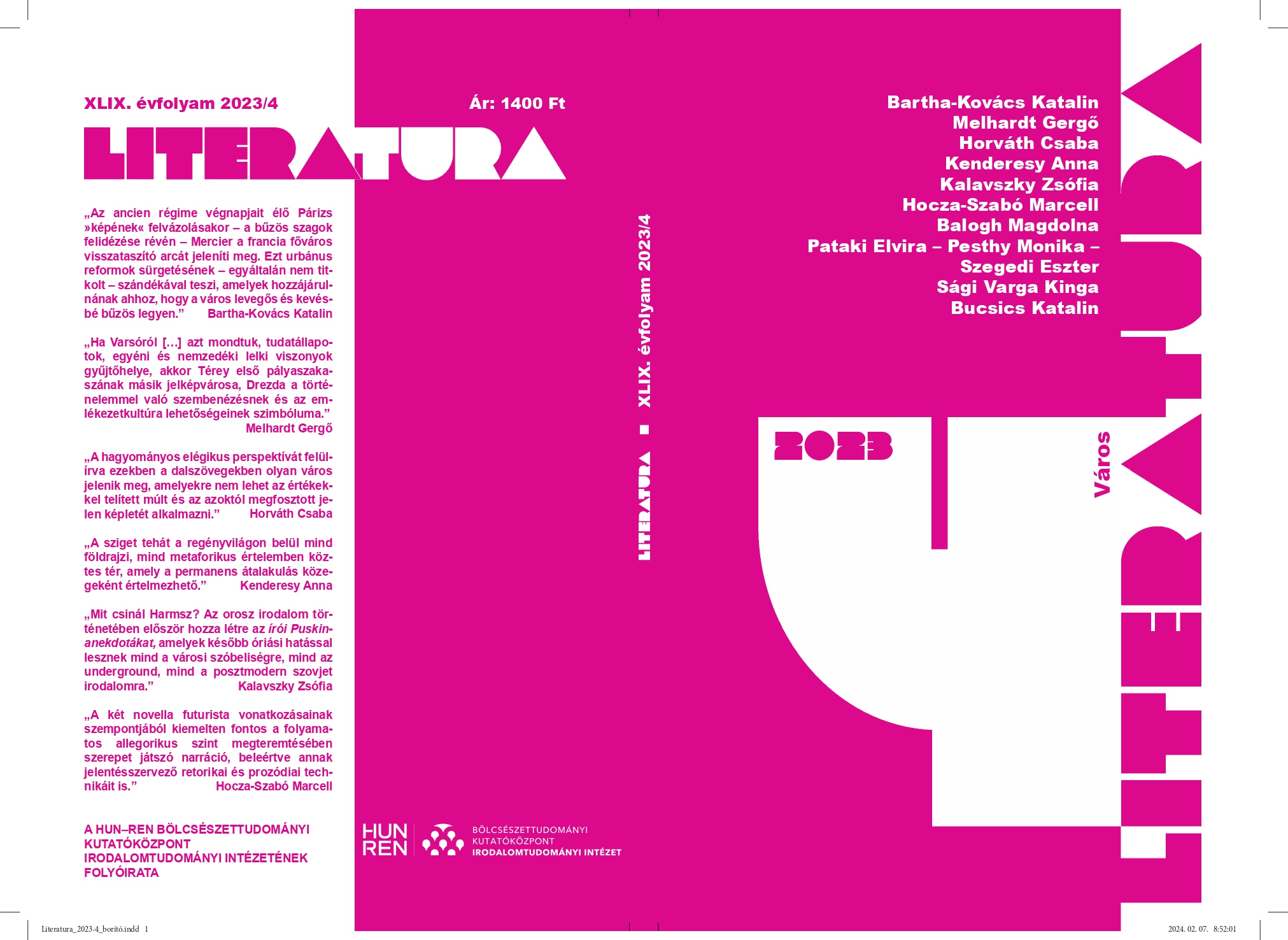Two Futurist Impressions
Analyzing Two Early Prose Texts by Lajos Kassák
Abstract
The paper examines two early prose texts by Lajos Kassák from the perspective of futurist aesthetics. By introducing new interpretative possibilities inherent in this approach, it attempts to transform the interpretative consensus that has so far emerged in criticism on the poetics of Hungarian activism. In a comparative analysis of the narrative and motivic systems of Ballada and Anarkistatemetés,the text aims to highlight the micro- and macro-level interrelations within the individual structure of these works. While describing the simultaneously allegorical and analogical organizing principles of the textual and tropical structures, the paper also seeks to describe the central concept of Hungarian activism (the collective individual), thus immanently incorporating into the interpretation of the works the characteristics of activism of the Hungarian avant-garde movement in the 1910s. The study shows that the scrutinization of the texts’ futuristic poetic traits can productively contribute to their understanding. The analyses of Kassák’s writings also juxtapose their imaginative structures concerning aesthetics and ideology, which may also help to reconsider the role of Hungarian activist literature that has been underestimated presumably due to the same duality.



